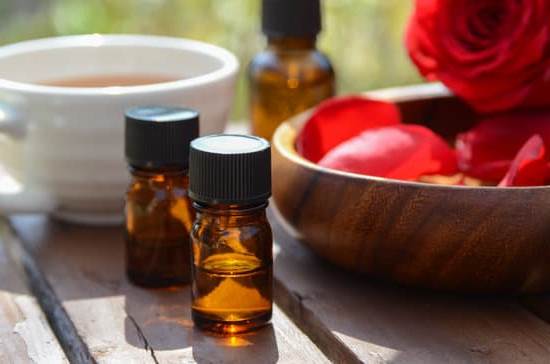Aromatherapy has been a popular holistic approach to wellness, utilizing essential oils derived from plants to promote physical and emotional well-being. Many people wonder, “Is aromatherapy good for pregnancy?” This article aims to explore the benefits of aromatherapy during pregnancy and how it can help alleviate common symptoms such as nausea, fatigue, and stress.
Aromatherapy involves the inhalation or application of essential oils through various methods like diffusers, massages, or baths. These natural oils are known for their therapeutic properties and have been used for centuries to improve health and relaxation. While aromatherapy can be beneficial for overall wellness, it is crucial for pregnant women to take safety precautions and consult with their healthcare provider before using any essential oils during pregnancy.
During pregnancy, women often experience a range of symptoms such as morning sickness, fatigue, mood swings, and stress. Aromatherapy offers a natural way to manage these discomforts without relying on medication. By using specific essential oils known for their calming or energizing properties, pregnant women can find relief from these common pregnancy challenges. In the following sections, we will delve into the recommended essential oils for pregnant women and how to use aromatherapy safely throughout pregnancy.
Safety Precautions
Consultation With Healthcare Provider
Before embarking on any aromatherapy regimen during pregnancy, it is crucial for expectant mothers to seek guidance from their healthcare providers. While aromatherapy can offer numerous benefits, the safety of essential oils during pregnancy can vary depending on individual health conditions and the stage of pregnancy. Consulting with a healthcare provider will ensure that any potential risks are minimized and that the chosen essential oils are safe for both the mother and baby.
Potential Risks
Although aromatherapy is generally considered safe when used correctly, there are certain risks that pregnant women should be aware of. Some essential oils may have uterotonic effects, meaning they could potentially stimulate contractions and pose a risk of premature labor.
Others may cause skin irritation or allergic reactions, which can be particularly concerning during pregnancy when skin sensitivity is heightened. By consulting with a healthcare provider, pregnant women can receive personalized advice on which essential oils to avoid and how to use them safely.
Individual Health Considerations
Every pregnancy is unique, and therefore what works well for one expectant mother may not have the same outcome for another. Certain health conditions, such as high blood pressure or gestational diabetes, may require special consideration when using aromatherapy. By discussing their specific health concerns with a healthcare provider, pregnant women can navigate the world of aromatherapy with confidence and peace of mind knowing that they are prioritizing both their own well-being and that of their unborn child.
Benefits of Aromatherapy During Pregnancy
Aromatherapy during pregnancy can be a safe and effective way to alleviate common discomforts that women may experience. Many essential oils have properties that can help reduce nausea, fatigue, and stress, making the pregnancy journey more manageable.
The use of aromatherapy involves inhaling or applying essential oils on the skin in a diluted form. It is important for pregnant women to consult with their healthcare provider before incorporating aromatherapy into their routine to ensure it is suitable for them and their baby.
Listed below are some benefits of using aromatherapy during pregnancy:
- Nausea Relief: Essential oils like ginger, peppermint, and lemon can help reduce feelings of nausea and morning sickness.
- Fatigue Management: Oils such as citrus, lavender, and eucalyptus can provide a natural energy boost and combat feelings of tiredness.
- Stress Reduction: Aromas like chamomile, rose, and ylang-ylang have calming properties that promote relaxation and reduce stress levels.
It is essential to choose the right essential oils for pregnant women as some oils may not be safe during this period. Always opt for high-quality oils from trusted sources that are specifically recommended for use during pregnancy. When using aromatherapy for pregnancy-related symptoms, it is best to start with gentle scents in low concentrations to ensure safety for both mother and baby.
- Remember to always dilute essential oils properly before applying them topically or inhaling them.
- Avoid using undiluted oils directly on the skin or ingesting them.
- Use caution when using certain essential oils like clary sage or jasmine which may stimulate contractions.
Recommended Essential Oils
Aromatherapy involves using essential oils derived from plant extracts to promote physical, mental, and emotional well-being. While many essential oils can offer various benefits, it is crucial to be cautious during pregnancy due to the potential impact on both the mother and the baby. Consulting a healthcare provider is essential before incorporating aromatherapy into a pregnancy routine to ensure safety and suitability.
When it comes to using aromatherapy during pregnancy, some essential oils are considered safe and can help alleviate common discomforts experienced by expecting mothers. Lavender oil is known for its calming properties and can assist in reducing stress and promoting relaxation. Additionally, peppermint oil may help relieve nausea and headaches, which are prevalent symptoms during pregnancy. Citrus oils like sweet orange or lemon can provide an energy boost and uplift mood.
| Essential Oil | Benefit |
|---|---|
| Lavender | Calming, stress-relief |
| Peppermint | Relief from nausea, headaches |
| Sweet Orange/Lemon | Energy boost, mood upliftment |
It is important to note that not all essential oils are safe for use during pregnancy. Oils such as rosemary, basil, and sage should be avoided as they could potentially stimulate contractions or have adverse effects on hormone levels. Diluting essential oils properly before use is also crucial to prevent skin irritation or sensitivities that may arise during pregnancy due to hormonal changes. Always follow recommended guidelines for dilution ratios and application methods when using aromatherapy while pregnant.
How to Use Aromatherapy Safely
Aromatherapy, the practice of using essential oils to promote physical and psychological well-being, is being increasingly recognized for its potential benefits during pregnancy. Many pregnant women turn to aromatherapy as a natural remedy to alleviate common pregnancy symptoms such as nausea, fatigue, and stress.
However, it is essential to use caution and follow safety guidelines when incorporating aromatherapy into your prenatal care routine. Consulting with a healthcare provider before using aromatherapy is crucial to ensure that the essential oils chosen are safe for both you and your baby.
To use aromatherapy safely during pregnancy, it is important to consider proper dilution, application methods, and usage frequency. Essential oils are highly concentrated substances that should be diluted with a carrier oil before applying to the skin. For pregnant women, it is recommended to use a lower concentration of essential oils compared to non-pregnant individuals.
Additionally, certain essential oils may be contraindicated during pregnancy or require special precautions. It is best to seek guidance from a trained aromatherapist or healthcare provider knowledgeable about aromatherapy for pregnancy.
When using aromatherapy during pregnancy, it is advisable to avoid specific essential oils known to be unsafe for expectant mothers. Some safe options for pregnant women include lavender (calming), peppermint (nausea relief), and chamomile (stress reduction).
These essential oils can be used in various ways such as inhalation through diffusers, topical application when properly diluted, or added to bath water for relaxation purposes. By following these guidelines on safe usage practices, pregnant women can harness the potential benefits of aromatherapy while minimizing any potential risks associated with improper use.
| Safe Essential Oils | Benefits |
|---|---|
| Lavender | Calming properties |
| Peppermint | Nausea relief |
| Chamomile | Stress reduction |
Aromatherapy for Labor and Delivery
Aromatherapy can be a valuable tool during labor and delivery, offering natural remedies to help ease pain and promote relaxation for expectant mothers. Essential oils have been used for centuries to support women during childbirth, providing a gentle and soothing way to manage discomfort and anxiety. Here are some ways in which aromatherapy can be used effectively during labor:
- Diffusion: Using an essential oil diffuser in the birthing room can create a calming atmosphere and provide continuous aromatherapy benefits. Scents like lavender or chamomile can help reduce anxiety and promote relaxation.
- Massage: Diluting essential oils with a carrier oil and using them for massage during labor can help ease muscle tension, promote circulation, and provide pain relief. Oils like peppermint or frankincense may be beneficial for alleviating discomfort.
- Inhalation: Inhaling essential oils through a cotton ball or handkerchief can provide quick relief during contractions. Scents like clary sage or ylang-ylang are known for their calming effects and may help manage pain intensity.
It is important to note that not all essential oils are safe for use during labor, so it is crucial to consult with a healthcare provider or a certified aromatherapist before incorporating aromatherapy into your birthing plan. Additionally, proper dilution ratios should always be followed to prevent any adverse reactions. With the right precautions and guidance, aromatherapy can be a gentle yet effective tool to enhance the birthing experience and support overall well-being during this special time.
Remember that every woman’s experience with pregnancy and childbirth is unique, so it is essential to listen to your body and communicate openly with your healthcare team about incorporating aromatherapy into your birth plan. When used safely and appropriately, aromatherapy may offer natural relief from discomfort, stress, and anxiety while creating a peaceful environment conducive to a positive birthing experience.
Conclusion
In conclusion, aromatherapy can indeed be a beneficial and safe practice for pregnant women when done correctly and under the guidance of a healthcare provider. While aromatherapy is generally considered safe during pregnancy, it is crucial to exercise caution and thorough research before incorporating essential oils into your routine. Consulting with a healthcare professional can help ensure that the chosen essential oils are safe and appropriate for your specific needs and condition.
By exploring the benefits of aromatherapy during pregnancy, we have found that it can help alleviate common symptoms such as nausea, fatigue, and stress. The use of essential oils like lavender for relaxation or ginger for morning sickness can provide much-needed relief for expecting mothers. Additionally, utilizing aromatherapy during labor and delivery can aid in pain management and promote a sense of calmness during the birthing process.
Overall, while there are many benefits to using aromatherapy during pregnancy, it is essential to approach this practice with care and mindfulness. By following safety precautions, choosing recommended essential oils, and using proper dilution methods, pregnant women can harness the potential positive impact of aromatherapy on their well-being throughout this significant journey. Aromatherapy may indeed be a valuable tool in promoting relaxation, reducing discomfort, and enhancing overall mental and emotional wellness during pregnancy.
Frequently Asked Questions
Is Aromatherapy Safe During Pregnancy?
Aromatherapy can be safe during pregnancy if used with caution. Some essential oils may trigger contractions or cause other complications, so it’s essential to consult a healthcare provider before using any aromatherapy products.
What Scents Should Be Avoided During Pregnancy?
Certain scents should generally be avoided during pregnancy due to their potential effects on hormonal balance and other risks. These include clary sage, rosemary, basil, jasmine, and many others that can stimulate contractions or have adverse effects on pregnancy health.
Is It Safe to Use an Air Diffuser While Pregnant?
Using an air diffuser while pregnant is generally considered safe as long as non-toxic essential oils are used in moderation. It’s crucial to ensure proper ventilation in the room and choose carefully the scents that do not pose risks to the pregnancy or fetal development.

Are you looking for a natural way to improve your health and wellbeing?
If so, aromatherapy may be the answer for you.





